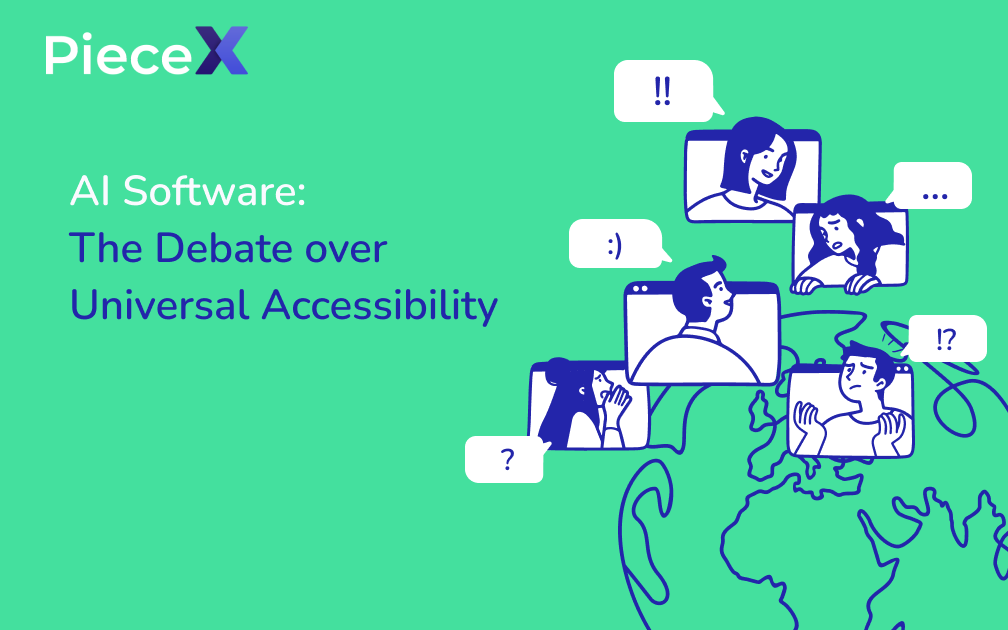
Artificial Intelligence (AI) has emerged as a transformative force in the modern world, reshaping industries, economies, and societies. As AI technology becomes more prevalent, a crucial question arises: should AI software be available to everyone? This article delves into the pros and cons of universal access to AI software, exploring its potential advantages, challenges, perspectives on regulation, addressing biases, and the future of AI accessibility.
Definition of AI Software
AI software refers to computer programs and algorithms that enable machines to perform tasks that typically require human intelligence. These tasks can include problem-solving, decision-making, language processing, image recognition, and much more. AI technology ranges from simple rule-based systems to sophisticated neural networks that learn from vast datasets.
The Advantages of Universal AI Software Accessibility
A. Democratizing Technology: Bridging the Digital Divide
Universal access to AI software can help bridge the digital divide by providing equitable opportunities to individuals and communities with limited access to advanced technologies. By making AI tools and resources accessible, underserved regions can leapfrog into the digital era, improving education, healthcare, and economic prospects.
B. Fostering Innovation and Creativity
When AI software becomes widely available, it empowers innovators and entrepreneurs from diverse backgrounds to experiment and create groundbreaking applications. Lowering barriers to entry encourages a broader range of ideas, leading to innovative solutions for global challenges.
C. Empowering Individuals and Small Businesses
Universal AI access offers individual users and small businesses the ability to harness AI technology to enhance productivity and decision-making. From automating repetitive tasks to personalized marketing, AI tools can level the playing field and boost efficiency for enterprises of all sizes.
D. Potential for Societal Transformation and Problem Solving
Universal AI software can accelerate research and problem-solving efforts in various fields, such as healthcare, climate change, and disaster response. AI-powered analysis of vast datasets allows for better understanding and more effective solutions to complex issues.
IThe Challenges of Universal AI Software Accessibility
A. Ethical Concerns: AI Misuse and Weaponization
Universal access to AI software raises concerns about potential misuse, including the development of autonomous weapons, deepfake technology, and AI-generated misinformation. Addressing ethical issues becomes paramount to ensure that AI is used responsibly and does not harm humanity.
B. Security Risks and Data Privacy Issues
Widespread availability of AI software also heightens security risks, as cybercriminals may exploit AI algorithms to breach sensitive systems. Additionally, AI applications often require access to vast amounts of personal data, posing significant privacy challenges that demand stringent safeguards.
C. Widening Socioeconomic Disparities
While universal AI access has the potential to narrow disparities, it can also exacerbate existing inequalities. Those with limited resources or education may struggle to fully utilize AI technology, creating a new form of digital divide based on AI literacy.
D. Impact on Employment and Labor Market
The widespread adoption of AI could disrupt industries and displace certain jobs. While AI has the potential to create new employment opportunities, there is a need for measures to retrain and reskill workers affected by automation.
Perspectives on Regulation and Control
A. Striking a Balance: Ensuring Responsible AI Use
Striking a balance between open access and responsible use is essential. Governments and organizations must implement regulations that promote ethical AI development and usage while encouraging innovation and access.
B. Importance of Ethical Guidelines and Standards
Establishing clear ethical guidelines and standards for AI development and deployment is crucial. This can help prevent AI systems from being used for malicious purposes and ensure they align with societal values.
C. Collaboration between Governments, Corporations, and Civil Society
Addressing the challenges of universal AI access requires collaboration between governments, corporations, and civil society. Open dialogue and cooperation can lead to more comprehensive and effective AI policies.
D. AI Software Licensing and Open-Source Alternatives
Exploring various licensing models, such as open-source AI software, can foster a collaborative environment, encouraging developers worldwide to contribute to AI advancement.
Addressing AI Bias and Fairness
A. Understanding Bias in AI Algorithms
AI algorithms can perpetuate existing biases present in training data, leading to unfair or discriminatory outcomes. Recognizing and understanding these biases is crucial in addressing them effectively.
B. Mitigation Strategies and Algorithmic Transparency
Developing strategies to mitigate AI bias and ensuring algorithmic transparency can help build trust in AI systems and promote fairness in their application.
C. Promoting Diversity in AI Development
Diverse perspectives in AI development teams can lead to more inclusive and unbiased AI technologies. Encouraging diversity in the AI field is essential for creating ethical and accessible AI solutions.
The Future of AI Accessibility: Limitations and Possibilities
A. Assessing Technological Readiness and Infrastructure
The universal accessibility of AI software depends on technological readiness and infrastructure. Improving internet connectivity and computing capabilities in underserved areas is crucial for equitable access.
B. Forecasting AI Development and Adoption
Anticipating the future growth of AI technology and its applications can inform policymakers and stakeholders to make informed decisions.
C. AI in Education and Raising AI Awareness
Promoting AI education and awareness is vital for preparing individuals to use AI responsibly and understand its societal impact.
Conclusion
AI software’s universal accessibility presents both promise and challenges. It can democratize technology, fuel innovation, and transform societies. However, ethical concerns, data privacy issues, and potential socioeconomic disparities demand careful regulation and responsible AI use. By addressing AI bias, fostering collaboration, and promoting inclusive development, we can shape a future where AI benefits all of humanity. The role of governments, corporations, and individuals in ensuring inclusive AI development is critical, as we navigate the debate over universal AI accessibility and chart a path towards a more equitable AI-powered world.
For more articles such as this, make sure to visit the PieceX Knowledgebase Blog.
